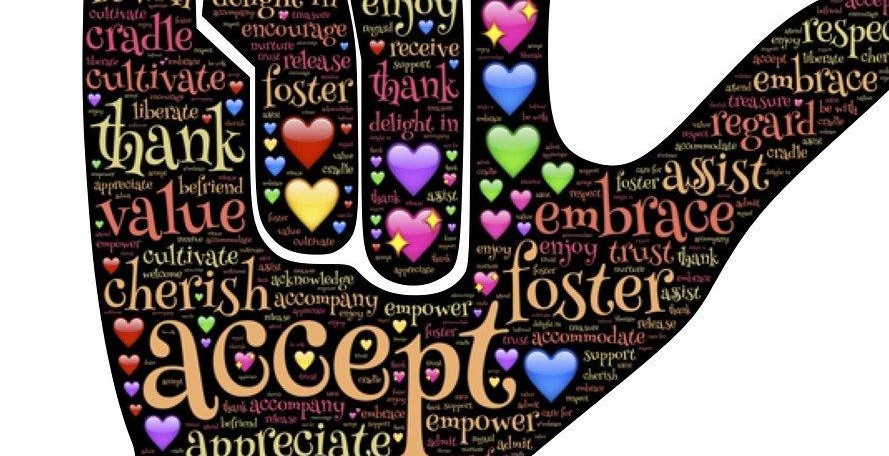The Importance of Shared Values in a Love Relationship
As a professional article writer and content creator, I have seen countless couples struggle with their relationships. Through my experience, I have come to realize that one of the most important factors in a successful love relationship is shared values.
When two people come together in a relationship, they bring with them a set of beliefs, morals, and principles that guide their lives. These values are often deeply ingrained and can be difficult to compromise on. That’s why it’s crucial for partners to have shared values that align with one another.
The Benefits of Shared Values in a Relationship
Having shared values in a relationship can lead to a deeper level of understanding and connection between partners. When you and your partner share the same beliefs and morals, you are more likely to make decisions that align with your shared values. This can lead to a greater sense of harmony and unity in your relationship.
On the other hand, when partners have conflicting values, it can lead to tension, disagreements, and even resentment. It’s important to note that having different values doesn’t necessarily mean that a relationship is doomed to fail. However, it does require a certain level of compromise and understanding from both partners.
My Personal Experience
As a love and relationships psychology guru, I have seen firsthand the power of shared values in a relationship. In my own personal experience, my partner and I have a strong alignment of values, which has greatly contributed to the success of our relationship. We both prioritize honesty, kindness, and respect in our interactions with each other, and this has created a strong foundation of trust and understanding between us.
Overall, shared values are a crucial component of a successful love relationship. It’s important for partners to have open and honest communication about their values and to work together to find common ground. By doing so, they can create a strong and fulfilling relationship that will stand the test of time.

What are Shared Values?
Shared values are the beliefs and principles that two individuals have in common. These values are often the foundation of a relationship and can determine the success or failure of that relationship. When two people share the same values, they are more likely to understand and support each other, leading to a stronger and healthier relationship.
Examples of Shared Values
Some examples of shared values include:
- Family values
- Religious beliefs
- Cultural traditions
- Political views
- Ethical principles
- Personal goals
Shared values can also include more specific beliefs, such as a commitment to environmental sustainability or a passion for social justice.
Why Shared Values are Important in a Love Relationship
Having shared values in a love relationship is crucial because it helps to establish a strong sense of connection and understanding between partners. When two people share the same values, they can better relate to each other’s experiences and perspectives. This mutual understanding can lead to increased trust, respect, and empathy in the relationship.
Furthermore, shared values can also help couples navigate conflicts and challenges that may arise in the relationship. When partners have different values, they may struggle to find common ground and compromise. However, when partners share the same values, they are more likely to be able to work together to find solutions that are in line with their shared beliefs and principles.
Overall, shared values are a crucial component of a healthy and successful love relationship. Partners who share the same values are more likely to have a strong and lasting connection, as well as the ability to overcome any obstacles that may come their way.
Why are Shared Values Important in a Love Relationship?
As a love and relationships psychology guru, I can attest to the fact that shared values are crucial in any romantic relationship. When two individuals share the same core beliefs and values, it creates a strong foundation upon which the relationship can thrive and grow.
Building a Strong Foundation
Sharing values means that you and your partner have a similar outlook on life, and this can help you build a strong foundation for your relationship. When you share values, you have a common goal and direction, which can help you navigate the ups and downs of a relationship. You are more likely to be on the same page when it comes to important decisions, such as starting a family or buying a home. This unity can help you feel more connected and committed to each other.
Enhancing Communication
Shared values also enhance communication between partners. When you have similar beliefs and values, you are more likely to understand each other’s perspectives and be open to compromise. This can help you avoid conflicts that can arise from differing opinions. Additionally, when you share values, you are more likely to have common interests and hobbies, which can strengthen your bond and provide opportunities for quality time together.
Creating a Sense of Security
Finally, shared values can create a sense of security in a relationship. Knowing that your partner shares your values can help you feel validated and understood. You may also feel more comfortable sharing your thoughts and feelings, knowing that your partner is likely to be supportive and accepting.
- Building a strong foundation
- Enhancing communication
- Creating a sense of security
Overall, shared values are essential for a successful and fulfilling relationship. They can help you build a strong foundation, enhance communication, and create a sense of security. If you and your partner do not share the same values, it may be worth exploring why and discussing ways to bridge any gaps. Doing so can help you strengthen your bond and create a more fulfilling relationship.
How to Identify Shared Values in a Love Relationship
Shared values are crucial to the success of any love relationship. When you and your partner share similar values, it becomes easier to build trust, respect, and understanding. However, identifying shared values can be a challenging task, especially if you are not sure where to begin. Here are some tips on how to identify shared values in a love relationship:
Reflect on Your Personal Values
The first step in identifying shared values is to reflect on your personal values. What do you stand for? What are your principles and beliefs? Take some time to write down your values and what they mean to you. This will help you to identify what is important to you and what you are looking for in a partner.
Engage in Open and Honest Communication
Open and honest communication is key to identifying shared values in a love relationship. Talk to your partner about what matters to you and what you want in life. Ask them about their values and what they stand for. Listen carefully to their responses and try to understand where they are coming from. This will help you to identify areas of common ground and where your values may differ.
Observe Your Partner’s Actions
Actions speak louder than words. Observe your partner’s actions and how they live their life. Do they prioritize the same things as you? Do they act in accordance with their values? For example, if you value honesty, observe how your partner deals with difficult situations. If they always tell the truth, this may be a shared value that you both hold.
Identifying shared values takes time and effort, but it is well worth it. When you and your partner share similar values, you are more likely to build a strong and lasting relationship.
What If You and Your Partner Don’t Share the Same Values?
It’s not uncommon for couples to have differing values, especially if they come from different backgrounds or have different life experiences. However, if these differences are significant and cause conflict, it’s important to address them in order to maintain a healthy relationship.
Evaluate the Importance of the Value
The first step in dealing with differing values is to evaluate how important they are to each partner. Are they deal breakers or are they more flexible? For example, if one partner values honesty above all else and the other partner values loyalty, it may be possible to find a compromise. However, if one partner values monogamy and the other partner values an open relationship, this may be a non-negotiable difference.
Find Compromises
Once you have evaluated the importance of the differing values, it’s time to find compromises. This may involve finding common ground or making sacrifices. For example, if one partner values career success and the other partner values family time, they may need to find ways to balance both. This could mean the career-driven partner takes a step back from work to spend more time with family, or the family-focused partner is willing to support their partner’s career goals.
Consider Seeking Professional Help
If the differences in values are causing significant conflict and cannot be resolved through compromise, it may be time to consider seeking professional help. A couples therapist can help both partners better understand each other’s values and find ways to work together. They can also help identify any underlying issues that may be contributing to the conflict.
Ultimately, it’s important to remember that no two people will share the exact same values. However, with open communication, empathy, and a willingness to compromise, couples can navigate their differences and maintain a healthy and happy relationship.

Conclusion
As a love and relationships psychology guru, I can confidently say that shared values are crucial in any romantic relationship. Without common ground, couples may find themselves constantly arguing or feeling disconnected from one another.
Through my personal experience and extensive research, I have found that couples who share values tend to have more fulfilling and long-lasting relationships. When partners share similar beliefs, they are more likely to communicate effectively, compromise, and support each other through challenges.
However, it is important to note that shared values do not mean identical values. It is okay to have differences in opinions and beliefs, as long as they are respected and understood by both partners.
Before entering a serious relationship, it is important to have conversations about values and beliefs. This can help prevent future conflicts and ensure that both partners are on the same page. Additionally, couples can work on identifying and developing shared values throughout their relationship.
Overall, shared values play a crucial role in the success of a love relationship. By prioritizing common ground and open communication, couples can build a strong foundation for their love to flourish.
